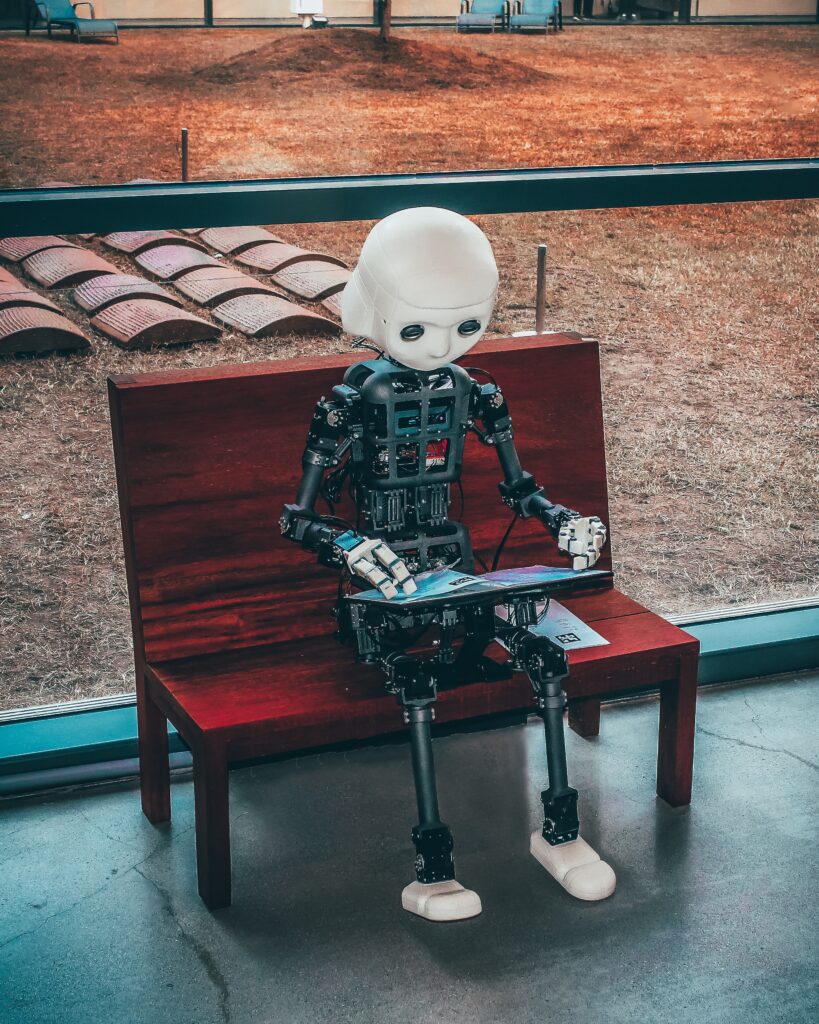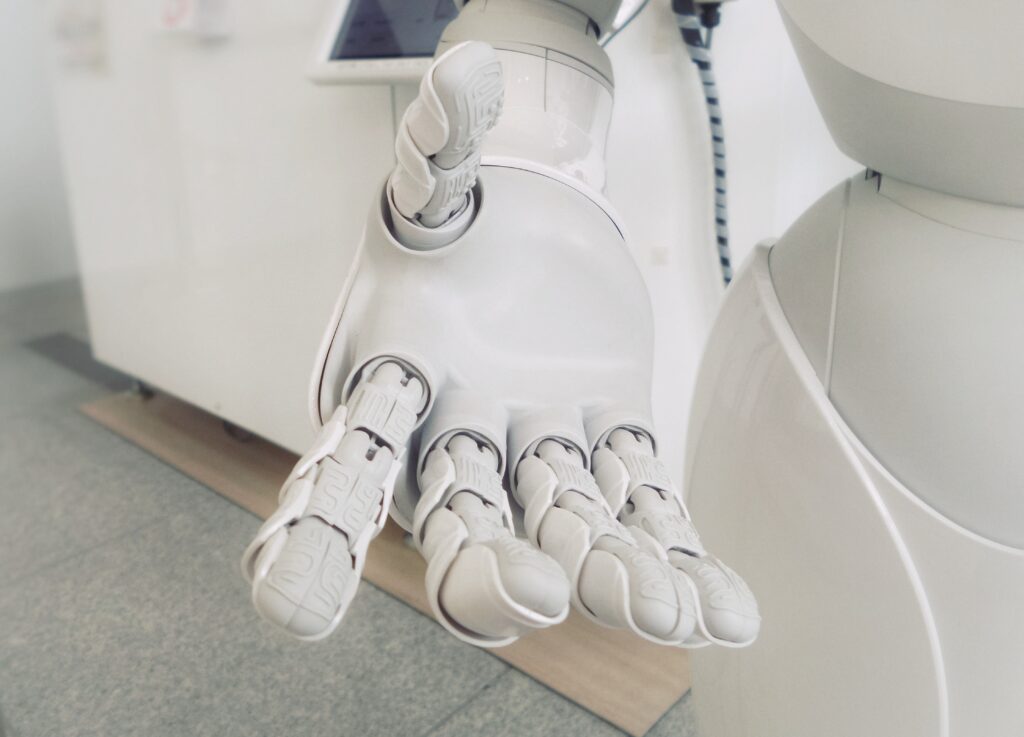In recent years, the field of computer science (CS) education has witnessed a profound transformation with the emergence of artificial intelligence (AI). This revolution has fundamentally changed the way we think about teaching and learning in the digital age. In this article, we will delve into the various aspects of the AI revolution in CS education, explore its impact on the curriculum, discuss the integration of AI into learning environments, and consider the future challenges and opportunities that lie ahead.

Understanding the AI Revolution in CS Education
One cannot understand the significance of the AI revolution in CS education without first examining the rise of AI in the field of computer science. Over the past decade, AI has emerged as a prominent area of research and innovation, with breakthroughs in machine learning, natural language processing, and computer vision. These advancements have not only reshaped industries but have also paved the way for its integration into educational settings.
The Rise of AI in Computer Science
The rise of AI in computer science has been fueled by the increasing availability of data, improved computing power, and advancements in algorithms. This has enabled computer scientists to develop AI systems that can perform tasks traditionally reserved for human intelligence, such as recognizing patterns, making predictions, and solving complex problems. As a result, AI has become an integral part of various domains, including healthcare, finance, and transportation.
One of the key factors driving the rise of AI in computer science is the exponential growth of data. With the proliferation of digital devices and the internet, vast amounts of data are being generated every second. This data serves as the fuel for AI algorithms, allowing them to learn and improve over time. Additionally, the advancements in computing power have made it possible to process and analyze this massive data at unprecedented speeds. This combination of big data and powerful computing has opened up new possibilities for AI applications.
Another significant factor contributing to the rise of AI is the development of sophisticated algorithms. Machine learning algorithms, in particular, have revolutionized the field by enabling computers to learn from data and make predictions or decisions without being explicitly programmed. These algorithms can detect patterns, extract insights, and adapt to changing circumstances, making them highly valuable in various domains. Furthermore, advancements in natural language processing and computer vision have allowed AI systems to understand and interact with humans in more intuitive ways.
The Impact of AI on CS Curriculum

The impact of AI on the CS curriculum has been profound. Traditional CS courses focused primarily on programming concepts, algorithms, and problem-solving skills. However, with the advent of AI, there has been a need to incorporate new topics such as machine learning, data science, and AI ethics into the curriculum. This shift reflects the evolving demands of the job market and prepares students for careers in an AI-driven world.
Machine learning, in particular, has become a core component of the CS curriculum. Students now learn about various machine learning algorithms, such as linear regression, decision trees, and neural networks. They also gain hands-on experience in training and deploying machine learning models using popular frameworks like TensorFlow and PyTorch. This practical knowledge equips them with the skills necessary to develop AI applications and contribute to cutting-edge research in the field.
Another important aspect of the AI revolution in CS education is the integration of data science. As AI heavily relies on data, students now learn how to collect, clean, and analyze data to derive meaningful insights. They gain proficiency in using statistical techniques, data visualization tools, and programming languages like Python and R. This enables them to work with real-world datasets and apply data-driven approaches to problem-solving.
In addition to technical skills, the CS curriculum now emphasizes the ethical considerations surrounding AI. Students learn about the potential biases, privacy concerns, and societal impacts associated with AI systems. They explore ethical frameworks and discuss the responsible development and deployment of AI technologies. By addressing these ethical dimensions, CS education ensures that future AI practitioners are equipped to make informed decisions and contribute to the responsible use of AI.
The Shift to AI-Integrated Learning
With technology permeating every aspect of our lives, it is natural that AI would find its way into learning environments. AI-integrated learning offers unique opportunities to enhance the educational experience and personalize instruction to meet students’ individual needs.
Imagine a classroom where every student has a virtual tutor, available 24/7, to provide personalized guidance and support. This is the promise of AI-integrated learning. By harnessing the power of artificial intelligence, educators can create a learning environment that adapts to each student’s unique learning style, pace, and preferences.
One of the key roles of AI in modern learning environments is to provide intelligent tutoring systems. These systems can analyze student data, such as their performance on assignments and assessments, to identify areas of weakness. Based on this analysis, the AI tutor can then offer targeted recommendations and resources to help the student improve. This individualized approach ensures that students receive the support they need to succeed.
The Role of AI in Modern Learning Environments
In addition to intelligent tutoring systems, AI also plays a crucial role in providing personalized feedback. Traditional learning environments often rely on teachers to manually grade assignments and provide feedback. However, this process can be time-consuming and may not always be consistent. AI-powered tools, on the other hand, can provide instant feedback on assignments, highlighting areas for improvement and offering suggestions for further study.
Furthermore, AI can facilitate adaptive learning platforms, where the curriculum and instructional materials are dynamically adjusted based on each student’s progress and performance. This ensures that students are always challenged at an appropriate level and can optimize their learning outcomes.
The Transition from Traditional to AI-Integrated Learning
While the integration of AI into learning environments brings numerous benefits, it also presents challenges. The transition from traditional to AI-integrated learning requires the development of new pedagogical approaches that leverage AI technologies effectively.
Teachers need to be equipped with the knowledge and skills to effectively integrate AI tools into their teaching practices. This may involve training programs and professional development opportunities to upskill educators and ensure they are comfortable using AI technologies in the classroom.
Additionally, the integration of AI technologies into existing infrastructures can be a complex process. Schools and educational institutions need to invest in the necessary hardware, software, and network infrastructure to support AI-integrated learning. This may require collaboration with technology companies and experts in the field to ensure a smooth and successful implementation.
Despite these challenges, the shift to AI-integrated learning has the potential to revolutionize education. By making learning more personalized, interactive, and engaging, AI can help students develop the skills they need to thrive in the digital age. With proper planning and support, AI-integrated learning can empower educators and students alike, creating a future where education is truly tailored to individual needs.
The Future of CS Education with AI

Looking ahead, the future of CS education with AI holds immense promise. As technology continues to evolve, so too will the role of AI in shaping educational practices. One area of interest is predicting the future of AI in CS education.
Predicting the Future of AI in CS Education
While no one can accurately predict the future, experts speculate that AI will become increasingly integrated into the CS curriculum. Concepts such as deep learning, robotics, and AI ethics are likely to gain prominence. Additionally, AI tools and platforms will become more sophisticated, providing educators with new ways to engage students and assess their learning.
Deep learning, a subfield of AI, involves training artificial neural networks to learn and make predictions. As the demand for AI professionals grows, understanding deep learning will become crucial for CS students. By incorporating deep learning concepts into the curriculum, educators can prepare students for the challenges and opportunities that lie ahead.
Robotics is another area that is expected to play a significant role in CS education with AI. As robots become more prevalent in various industries, understanding how to program and interact with them will be essential for future CS professionals. By integrating robotics into the curriculum, students can gain hands-on experience and develop the skills needed to design, build, and program robots.
AI ethics is an emerging field that explores the ethical implications of AI technologies. As AI becomes more integrated into society, it is crucial to consider the ethical implications and potential biases that may arise. By incorporating AI ethics into the CS curriculum, educators can foster critical thinking and ethical reasoning skills in students, ensuring they are equipped to navigate the ethical challenges of an AI-dominant future.
Preparing Students for an AI-Dominant Future

As AI continues to reshape industries, it is essential to prepare students for an AI-dominant future. This involves not only teaching technical skills but also developing critical thinking, problem-solving, and ethical reasoning abilities. By integrating AI into the curriculum, educators can equip students with the necessary knowledge and skills to thrive in a rapidly evolving technological landscape.
Develop critical thinking abilities
In addition to technical skills, students need to develop critical thinking abilities to analyze and solve complex problems. AI can assist in this process by providing students with tools and algorithms that help them break down problems into manageable steps. By incorporating AI problem-solving techniques into the curriculum, educators can empower students to think critically and approach challenges from different angles.
Ethical reasoning
Furthermore, ethical reasoning is crucial in an AI-dominant future. As AI systems make decisions that impact individuals and society, it is essential for CS professionals to consider the ethical implications of their work. By integrating AI ethics into the curriculum, educators can foster a sense of responsibility and ethical awareness in students, ensuring they develop AI systems that are fair, transparent, and accountable.
Promoting interdisciplinary collaboration
Preparing students for an AI-dominant future also involves promoting interdisciplinary collaboration. AI intersects with various fields, such as psychology, sociology, and philosophy. By encouraging collaboration between CS students and students from other disciplines, educators can foster a holistic understanding of AI and its impact on society. This interdisciplinary approach will enable students to tackle complex problems and develop innovative solutions that address the needs and concerns of diverse stakeholders.
In conclusion, the future of CS education with AI is filled with exciting possibilities. By predicting the future of AI in CS education and preparing students for an AI-dominant future, educators can ensure that students are equipped with the knowledge and skills needed to thrive in a rapidly evolving technological landscape. With the integration of deep learning, robotics, AI ethics, critical thinking, problem-solving, and interdisciplinary collaboration, CS education can pave the way for a future where AI is harnessed for the benefit of society.
Challenges and Opportunities in AI-Driven CS Education
While the AI revolution in CS education is promising, it also presents challenges and opportunities that must be carefully navigated.
The integration of AI technology in CS education has the potential to revolutionize the way students learn and engage with the subject. However, with this transformative power comes a set of challenges that must be addressed to ensure the responsible and equitable use of AI in educational settings.
Addressing the Challenges of AI in CS Education
One significant challenge is ensuring that AI technology is accessible and inclusive. While AI has the potential to enhance learning experiences for all students, there is a risk of exacerbating existing inequalities. It is crucial to address issues of equity, privacy, and bias to ensure that AI-driven CS education benefits all students, regardless of their background or abilities.
Educators and policymakers must work together to develop ethical guidelines and robust safeguards that protect students’ rights and ensure the responsible use of AI. This includes addressing concerns such as data privacy, algorithmic bias, and the potential for AI to perpetuate existing educational disparities. By proactively addressing these challenges, we can create an AI-driven CS education system that is fair, inclusive, and effective.
Exploring the Opportunities of AI in CS Education

On the opportunity front, AI offers immense potential for innovation and improvement in CS education. By leveraging AI technologies, educators can create dynamic and engaging learning experiences that cater to the diverse needs of students.
One of the key opportunities that AI presents is the automation of administrative tasks. With AI-powered tools, educators can streamline administrative processes, such as grading assignments and managing course materials. This frees up valuable time for teachers to focus on providing personalized support and guidance to students.
AI can also facilitate personalized learning by adapting instructional content and pacing to individual students’ needs. Through intelligent algorithms, AI can analyze students’ strengths and weaknesses, identify areas for improvement, and provide targeted recommendations and resources. This personalized approach to learning can enhance students’ understanding and retention of CS concepts, ultimately leading to improved academic outcomes.
Furthermore, AI can provide real-time feedback to students, allowing them to track their progress and make adjustments as needed. By receiving immediate feedback, students can identify areas where they need to improve and take proactive steps to enhance their learning. This iterative feedback loop fosters a growth mindset and empowers students to become active participants in their own education.
In conclusion, integrating AI in CS education poses challenges, ensuring accessibility and addressing ethical concerns. However, it also presents exciting opportunities for innovation and improvement. By carefully navigating these challenges and leveraging AI’s potential, we can create an inclusive, effective CS education system that prepares students for the future.
Conclusion
The AI revolution in CS education has ushered in a new era of teaching and learning. The rise of AI in computer science presents an exciting opportunity for educators. This shift to AI-integrated learning opens doors for future challenges and opportunities. Educators can actively shape the future of computer science education. By embracing AI’s power, they equip students with the skills to navigate an AI-driven world successfully.